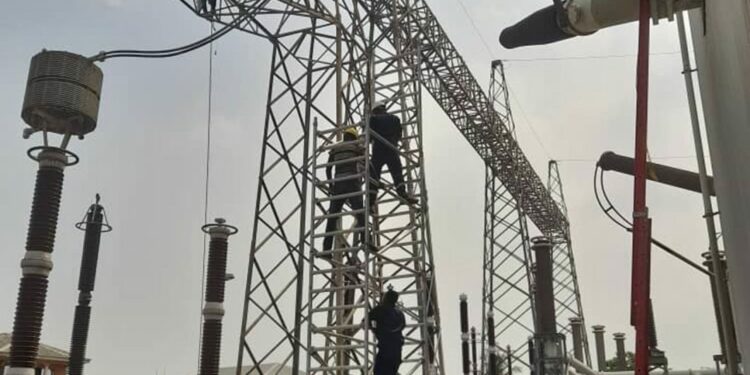The latest data on the daily Discos load summary from the Federal Ministry of Power showed that the 11 power distribution companies in Nigeria did not utilize a total of 1,936.26 megawatts of electricity in one week amidst the country’s limited power generation.
Figures contained in the load summary obtained in Abuja on Monday, indicated that the power firms did not utilise the 1,936.26MW between August 13 to 19, 2022 due to various concerns such as electricity theft, poor payment of bills, etc, in the distribution subsector.
The 11 power distribution companies include Abuja, Benin, Eko, Enugu, Ibadan, Ikeja, Jos, Kaduna, Kano, Port Harcourt and Yola. The unutilized power was the difference between the electricity load allocated to the firms and their actual consumption.
An analysis by our correspondent of the unutilized load by the Discos showed that on August 13, the power firms did not utilise a total of 208.44MW, while they did not distribute 364.11MW on August 14.
On August 15, 16 and 17, the quantum of unutilized load by the Discos in each of the days were 444.4MW, 216.86MW and 466.3MW respectively.
It was, however, observed that on August 18, only 1.47MW of electricity was recorded as unutilized load by Port Harcourt Disco, while the other 10 Discos received and distributed a cumulative excess load allocation of 656.76MW on the same day.
For August 19, the Discos did not utilise 234.68MW, while the sum of the seven-day unutilised electricity load was 1,936.26MW.
Nigeria’s power supply has not been impressive since the electricity generation and distribution arms of the sector were privatised in November 2013 despite the trillions of naira pumped into the business by both the Federal Government, development partners and private investors.
Power generation on the national grid has continued to hover between 3,500MW and 4,500MW for several years, for instance, as at 6am on Monday, what was on the grid was 3,937.3MW.
Also, power distributors have repeatedly raised concerns about the operating environment in the sector.
In a document that was recently made available to newsmen by the Executive Director, Research and Advocacy, Association of Nigerian Electricity Distributors, Sunday Oduntan, the Discos argued that their performance could not be divorced from the presence of an enabling environment.
They stated that the key fundamental deficiencies of the sub-sector include non-payment of electricity liabilities by the ministries, departments and agencies of government, inconsistent and unsustainable electricity tariff modelling and implementation, electricity theft, etc.
They also said there was a misalignment or misallocation of risk, which include government-owned risk of gas pipeline vandalism, limited gas pipeline network and commercial framework, limited or constrained government-owned transmission network, government policy/regulatory inconsistencies, which had all been wrongly passed on to the Discos.
This, according to ANED, the umbrella body of Discos, was undermining a core predicate of the electricity business that risk should be borne by the party that could best bear it.
Power generation on the national grid has continued to hover between 3,500MW and 4,500MW for several years, for instance, as at 6am on Monday, what was on the grid was 3,937.3MW.
Also, power distributors have repeatedly raised concerns about the operating environment in the sector.
In a document that was recently made available to our correspondent by the Executive Director, Research and Advocacy, Association of Nigerian Electricity Distributors, Sunday Oduntan, the Discos argued that their performance could not be divorced from the presence of an enabling environment.
They stated that the key fundamental deficiencies of the sub-sector include non-payment of electricity liabilities by the ministries, departments and agencies of government, inconsistent and unsustainable electricity tariff modelling and implementation, electricity theft, etc.
They also said there was a misalignment or misallocation of risk, which include government-owned risk of gas pipeline vandalism, limited gas pipeline network and commercial framework, limited or constrained government-owned transmission network, government policy/regulatory inconsistencies, which had all been wrongly passed on to the Discos.
This, according to ANED, the umbrella body of Discos, was undermining a core predicate of the electricity business that risk should be borne by the party that could best bear it.
“The core issues of the lack of a cost reflective and sustainable tariff, inadequate gas supply, inconsistent regulatory and policy determinations, transmission grid constraint, non-payment of MDA electricity debt, electricity theft, lack of respect for sanctity of contract, etc, must be addressed if the electricity distribution subsector, in particular, and Nigeria Electricity Supply Industry in general, is to make progress,” the power firms stated.
They, however, noted that Discos were ready to deliver on their mandates despite the challenges and would continue to work with relevant stakeholders to achieve this.










Discussion about this post